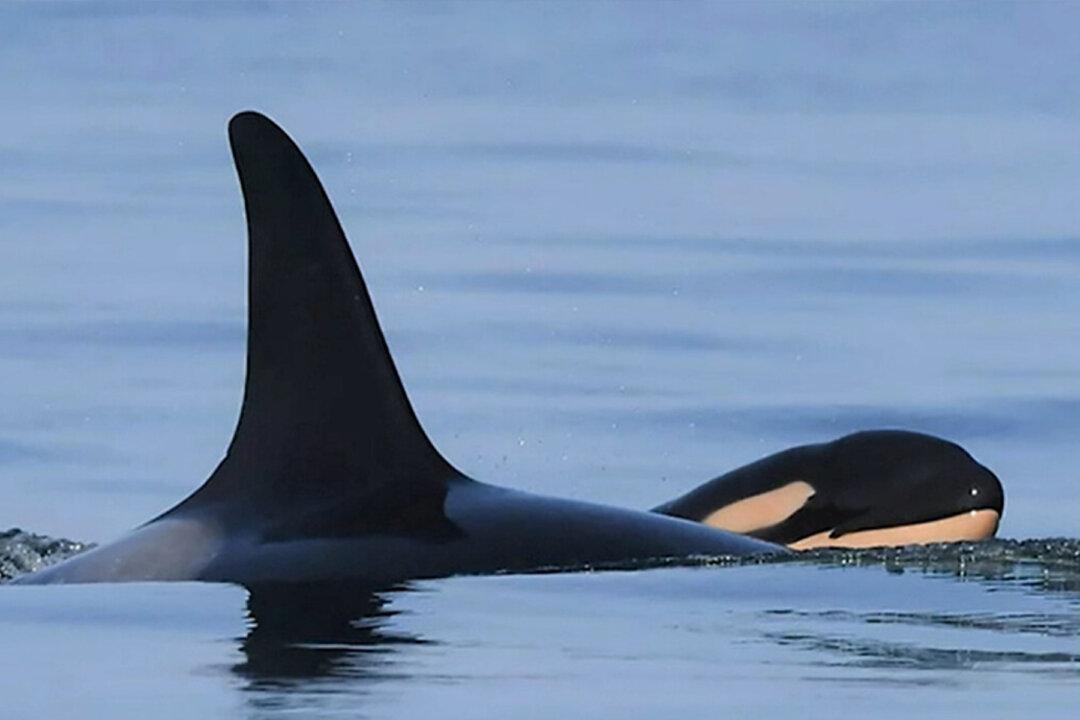Whale experts have confirmed that a well-known female orca named Tahlequah recently gave birth off the coast of British Columbia.
And it’s a boy.

Whale experts have confirmed that a well-known female orca named Tahlequah recently gave birth off the coast of British Columbia.
And it’s a boy.